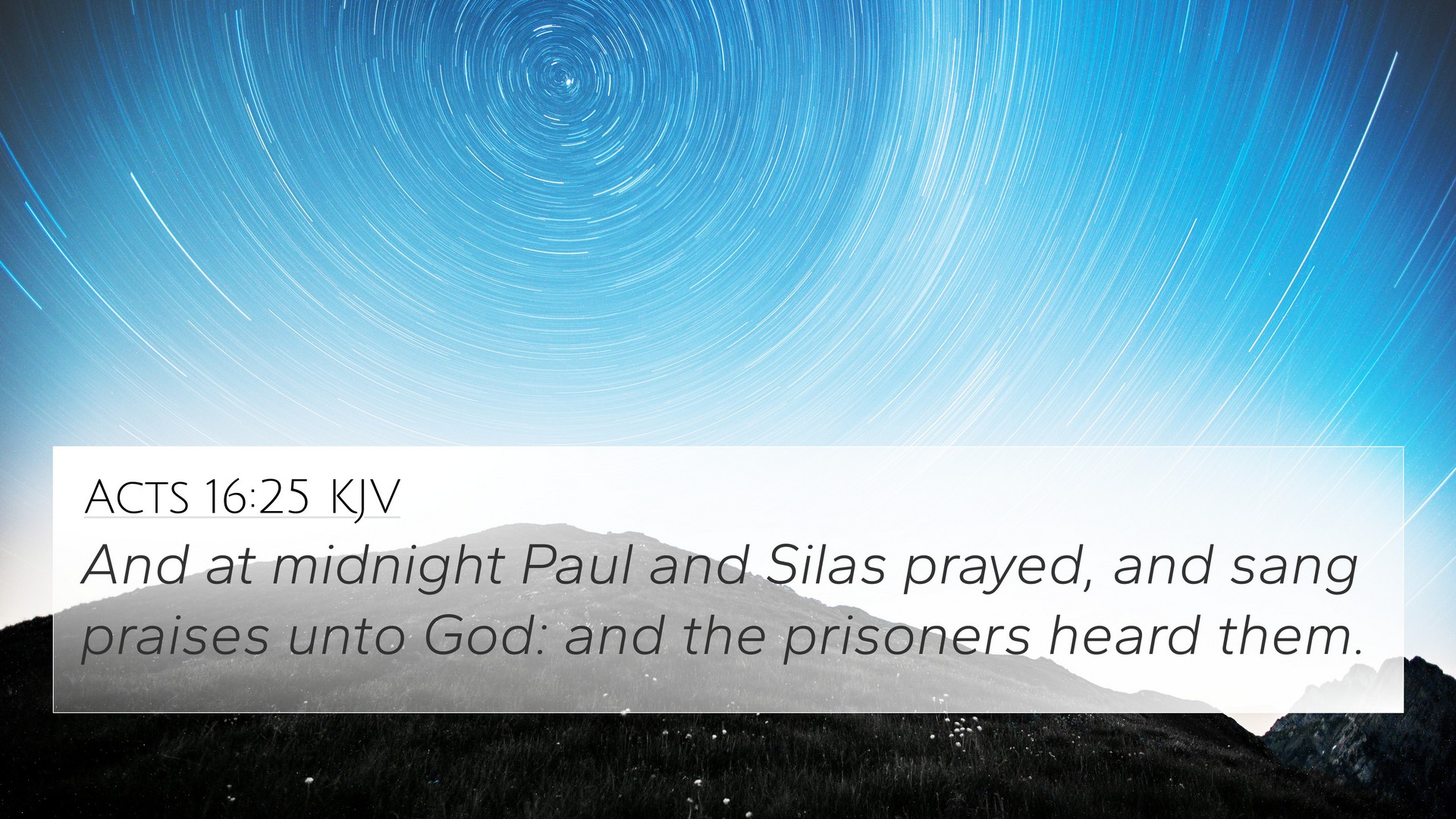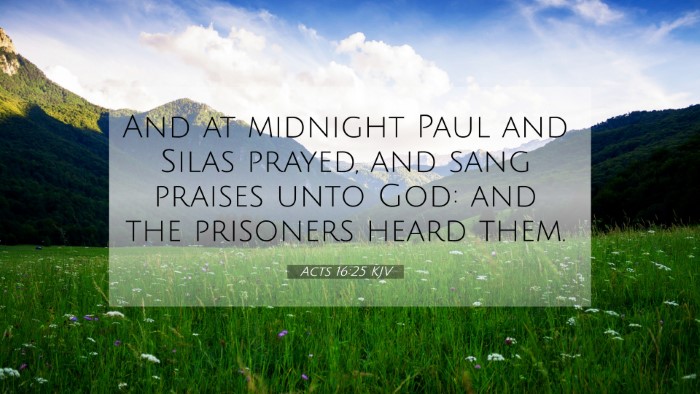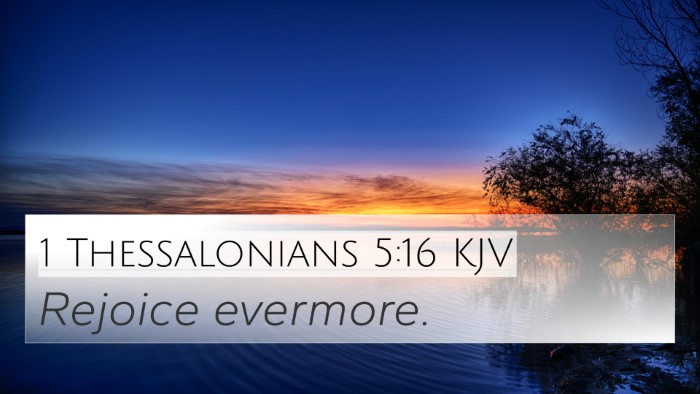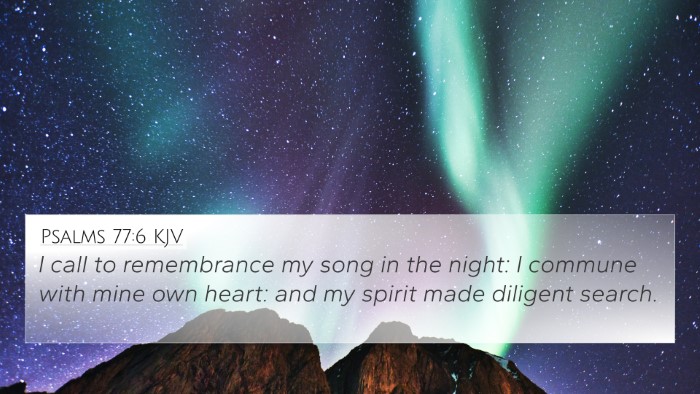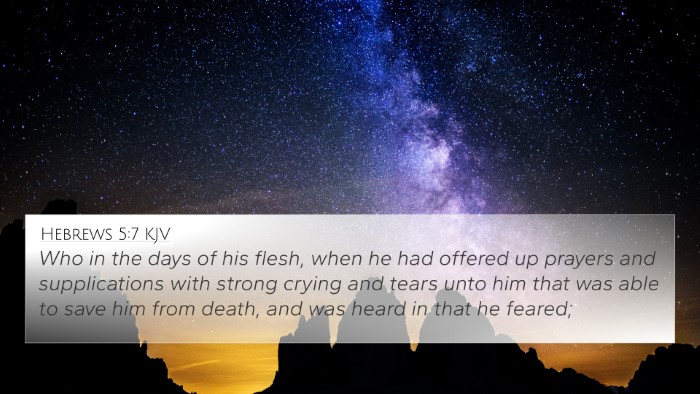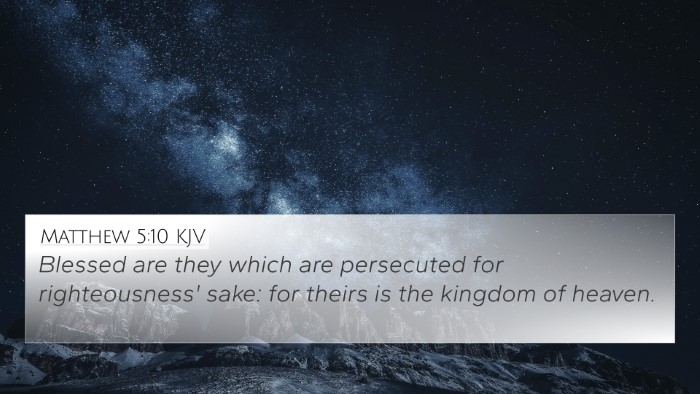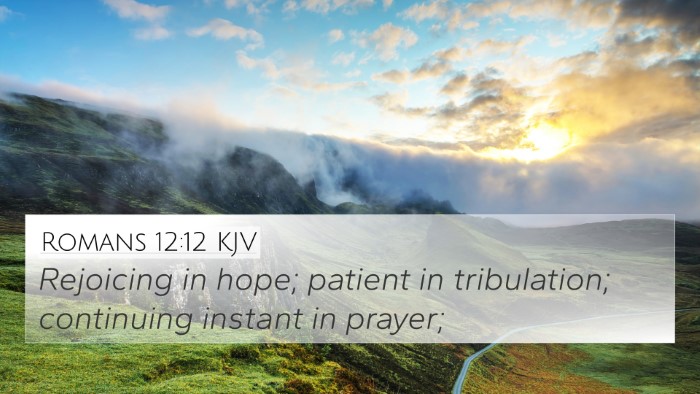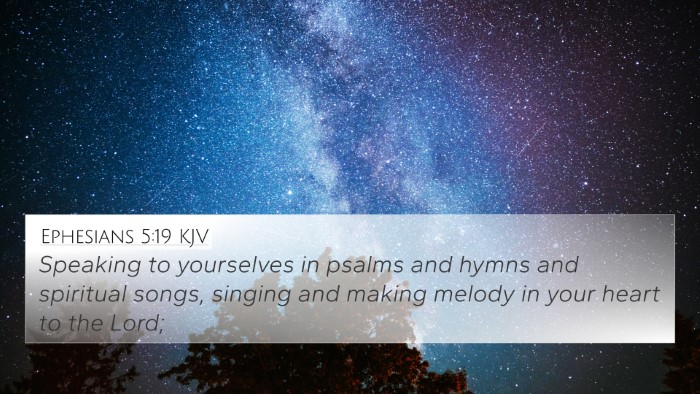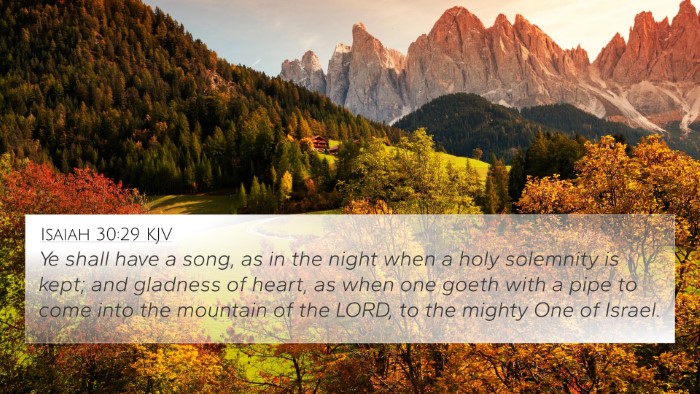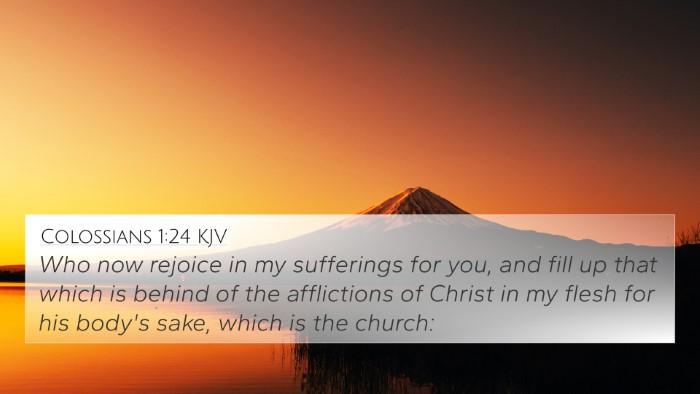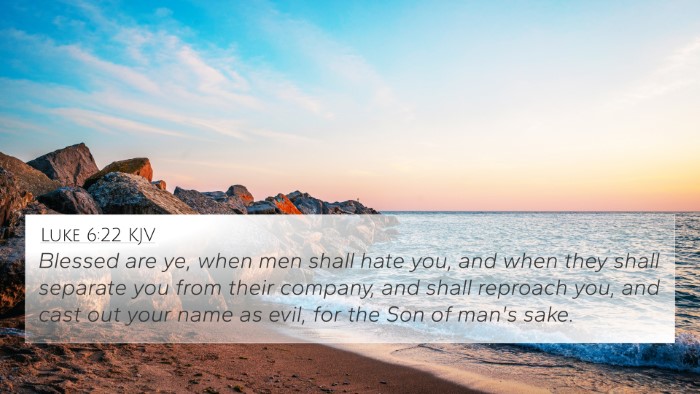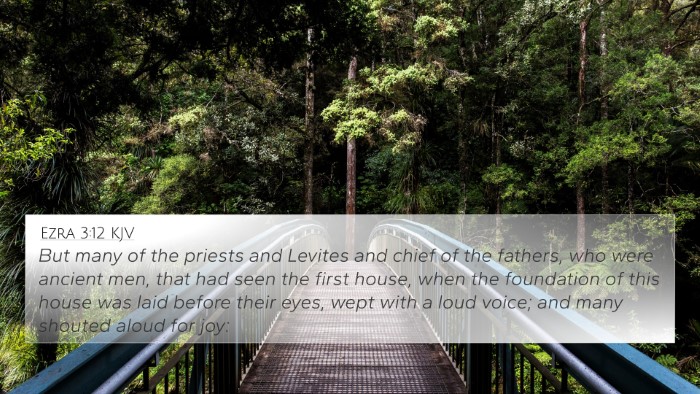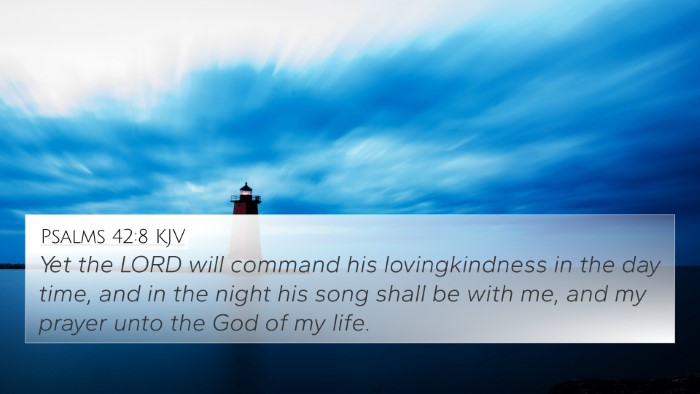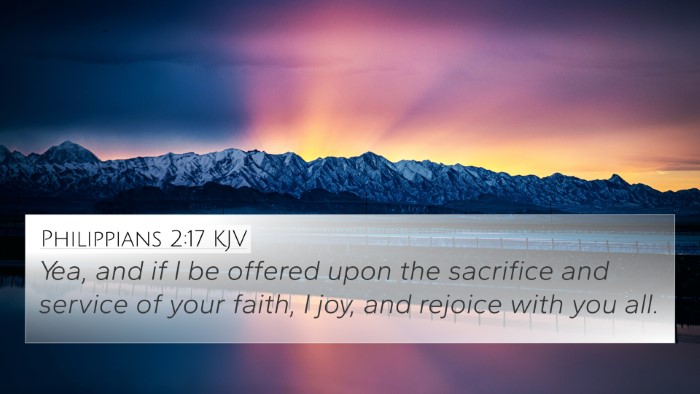Understanding Acts 16:25
Acts 16:25 states: "But at midnight, Paul and Silas prayed, and sang praises unto God: and the prisoners heard them." This verse reveals profound truths about faith, worship, and the power of prayer during trials. The context of this verse is significant, as Paul and Silas were imprisoned unjustly for preaching the Gospel. Despite their dire circumstances, their response was one of prayer and praise.
Key Themes in Acts 16:25
- The Power of Prayer: In moments of hardship, prayer is a vital tool for believers, offering a direct line of communication with God.
- The Act of Praising God: Praising God amidst difficulties demonstrates trust in His sovereignty and goodness.
- Impact on Others: Their singing did not go unheard; the prisoners around them were witnesses to their faith, highlighting the mission of evangelism even in suffering.
Bible Verse Cross-References
The following Bible verses connect with Acts 16:25, illustrating similar themes and reflections on prayer, praise, and the responses of faithful individuals in trials:
- Philippians 4:6-7: Encourages believers not to be anxious, but to present their requests to God with thanksgiving.
- Psalm 34:1: "I will bless the Lord at all times: his praise shall continually be in my mouth." This relates to the constant worshipful attitude of Paul and Silas.
- James 5:13: "Is any among you afflicted? let him pray. Is any merry? let him sing psalms." This verse reinforces the connection between prayer and praise.
- 1 Thessalonians 5:16-18: "Rejoice evermore. Pray without ceasing. In everything give thanks..." Affirming the importance of continual worship.
- Psalm 142:1-2: A cry for help that underscores the significance of vocalizing one's prayers, much like Paul and Silas did.
- 2 Chronicles 20:22: "And when they began to sing and to praise, the Lord set ambushments..." which showcases the power of praise in battle.
- Romans 8:28: "And we know that all things work together for good to them that love God..." reminding believers of the ultimate good that can come from suffering.
Insights from Public Domain Commentaries
Matthew Henry's Commentary
Matthew Henry emphasizes the faith displayed by Paul and Silas, noting that their joy and praise in the midnight hour was an act of faith and submission to God. He suggests that true worship arises from trust in God's character, regardless of one's situation. This commentary expands the view of suffering as an opportunity to experience divine presence and power.
Albert Barnes' Notes on the Bible
Albert Barnes points out the significance of the time of their prayers, midnight—a symbol of despair and hopelessness. They turned to prayer rather than complaining about their plight, demonstrating that prayer is a source of strength. He also stresses the effects of their actions, as they not only prayed but sang praises, drawing attention to the importance of worship in altering one's spiritual atmosphere. Their singing served as a witness to those around them.
Adam Clarke's Commentary
Adam Clarke elaborates on the miraculous aspect of this event, noting that the very act of singing praises may seem counterintuitive in suffering. He examines the cultural implications of their actions, arguing that their worship was a form of protest against the oppressive powers of the day, turning their imprisonment into a platform for witnessing God's faithfulness.
Thematic Bible Verse Connections
Acts 16:25 invites a broader examination of how believers respond to trials across the Scripture. The themes of faithfulness, worship, and witnessing in adversity resonate throughout the Bible:
- The Example of Job: Job maintained his integrity and worshipped God despite his suffering (Job 1:21).
- Daniel's Prayer: Daniel prayed steadfastly even when it risked his life (Daniel 6:10), illustrating unwavering faith.
- The Early Church's Prayers: Acts 4:24-31 reflects the community's response to persecution with unified prayer and praise.
- Jesus in Gethsemane: In His darkest hour, Jesus committed His spirit and praised God's will (Luke 22:42).
Cross-Referencing Biblical Texts
Cross-referencing in Biblical studies allows individuals to uncover the interconnectedness of the Scriptures, enhancing the understanding of verses like Acts 16:25. Tools for Bible cross-referencing, such as a Bible concordance or a cross-reference guide, can help identify links between various scriptures.
Tools for Bible Cross-Referencing
- Bible concordance: Guides readers on where to find related terms and themes.
- Bible cross-reference guide: Lists verses that contain similar concepts or teachings.
- Cross-reference Bible study methods: Techniques to delve deeper into themes shared among verses.
- Bible reference resources: Various tools available for exploring scriptural connections.
Conclusion
Acts 16:25 is a powerful reminder of how believers should respond to trials. The connection of prayer and praise during times of suffering becomes a testimony not only to God but also to those around us. Use cross-referencing tools to explore deeper connections across scriptures, enriching your study and understanding of God's work and character in scripture.
